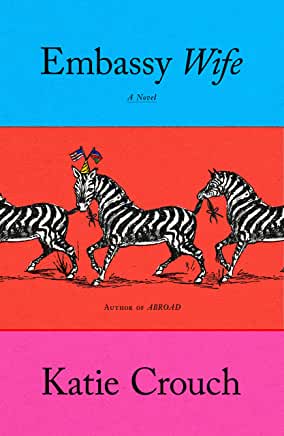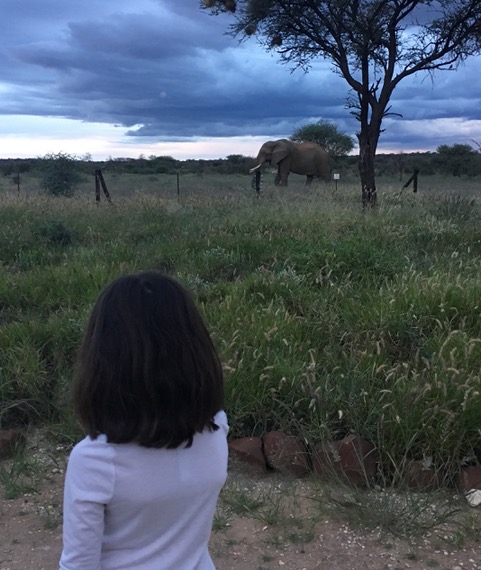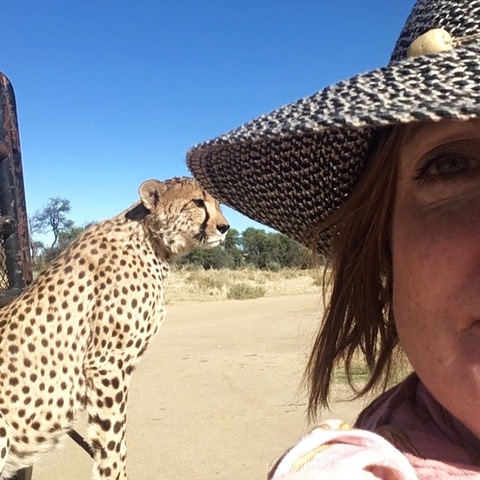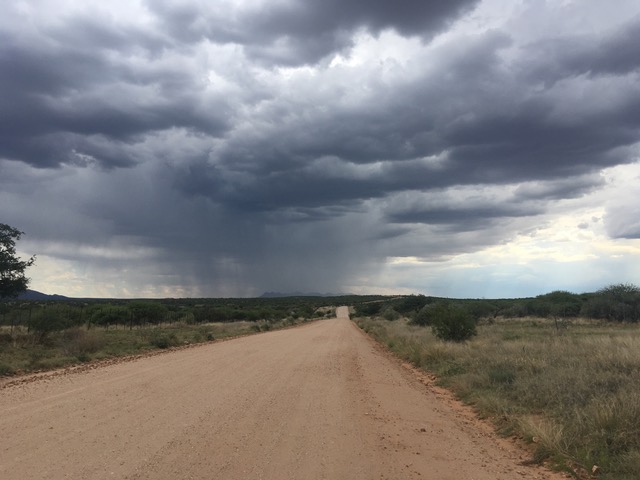
Editor’s Note: Have you read “Embassy Wife” yet? Katie Crouch’s novel was one of our 2021 summer reading recommendations, but it’s good all year round!
See below for our Q&A about how her life inspired this fun and thought-provoking read.
How did you become a trailing spouse?
My husband Peter won a Fulbright to Namibia in 2015 to teach at the university and research a book. At the time we were living in San Francisco. We are both writers, but I had taken some years off to work in marketing at Apple’s HQ in Cupertino in order to save some money.
(Writers often have to pause their careers in order to support themselves. Agatha Christie, for example, was a pharmacist!)
Anyway, Peter came home one day and said, “Hey, I got the fellowship for next year!” I’d always vaguely wanted to live in Sub-Saharan Africa, so I thought, why not? We told my daughter, who freaked in a good way, and I mentally began withdrawing from my big job.
Naturally, at this time, we unexpectedly got pregnant with our second child. (VERY unexpectedly. I was 42.) I’ve always been an adventurous traveler, so I had this big idea of arriving with a newborn strapped to my chest and driving a Land Rover to see the elephants. Needless to say, things did not happen this way.
How did your experience compare to what you had imagined?
I was much less resilient than I thought I would be. Also, I thought I’d have much more support. Remember the scene in The Crown, where Elizabeth visits Kenya and hundreds of locals are there to welcome here? That’s the picture I had in my head. Well … no.
Peter had a professional engagement the week we were to leave, so I took the 28-hour trip with our 6-week-old son, our 7 year-old daughter, and my mother — who was there to help, but mostly drank wine and napped seven rows behind us.
(Other than that, she was pretty helpful.)
The airline had seated us all separately, including the baby, so I had to beg other passengers — many who had invested years of savings into this ticket to Johannesburg — to switch. I think I cried four separate times. At every transfer point, we had visa issues, so it took us two extra days to actually get to Windhoek. And at the airport there was … no one!
I think if I hadn’t just had a baby, I would have been more prepared, but I sort of decompensated as soon as I arrived. It was 104 degrees, our assigned house had no furniture and was swelling with mosquitos because of a dilapidated pool, and almost everything was closed, as Namibia shuts down for most of January. I was sweaty and leaking milk, and I felt seriously ready to kill everyone.

On the upside, Namibia’s landscape and people did not disappoint. The place is stunning, and everyone I met was so nice and helpful. Every time we went to the town’s one open restaurant (I couldn’t bear to cook), our server would grab the baby and take him to the kitchen, so I could have a break. After a week we went to a game reserve to see some animals. Once I looked into the eyes of a rhinoceros, I knew everything would be okay.
How would you rank your move using the Gupte Scale?
Destination: 5
Resources: 1
Timing: 1
So I guess that’s a 7/15.
How did your relocation challenge you, personally and professionally?
I was incredibly lonely the first two months. There was a lot of me driving around on the left side of the road in the blazing heat, trying to figure out how to buy sheets. And I started to resent my husband, who was going to all of these welcoming events while I looked after the kids. I definitely didn’t prepare for that.
I wish, before I’d left, someone had taken me aside to remind me that this relocation was about his job, so I would have to carve out my own niche. Or actually, I wish I’d just thought about it more. Once I got to Namibia with nothing professionally to do, I became a tad unhinged.

How did you make the most of your move, demonstrating grit and creativity?
As soon as I was able to string together five hours of sleep, I started writing down all of the ridiculous things that were happening around me. Like baboons stealing my very last can of baby formula. Or having to bribe four people with specifically requested Victoria’s Secret perfume to obtain a temporary visa.
Eventually, all of these funny things (and not so funny) ended up morphing into my novel, Embassy Wife.
What lessons have you learned that you would like to share with others?
You will definitely be the center of your own universe for a while, so prepare. I learned this from my State Department friends. They bring games, books, movies, the coffee they like, the tampons that work for them, EVERYTHING. All so they can be comfortable when they’re homesick. At first I thought it was ridiculous, but when I was on my last nerve and my daughter was bugging me for Annie’s Organic mac and cheese, I started to understand.

Anything else you’d like to add for our readers?
Living abroad as a family is challenging, but so is life. Once you’ve had to entertain your kids by racing weird-looking crickets in the middle of the Kalahari in deadly heat, COVID isolation is a breeze! I won’t sugarcoat our time in Namibia; it was exhausting, and my kids gave me a hard time, and my husband and I fought a lot. But when I wrote this book, I realized that every bad thing that happened made us better in some way.
Well, almost every bad thing. I could have done without the food poisoning from zebra steaks. Which could be seen as a don’t-eat-zebra lesson, but I’m just not sure when I’ll have the chance to use that wisdom again!

